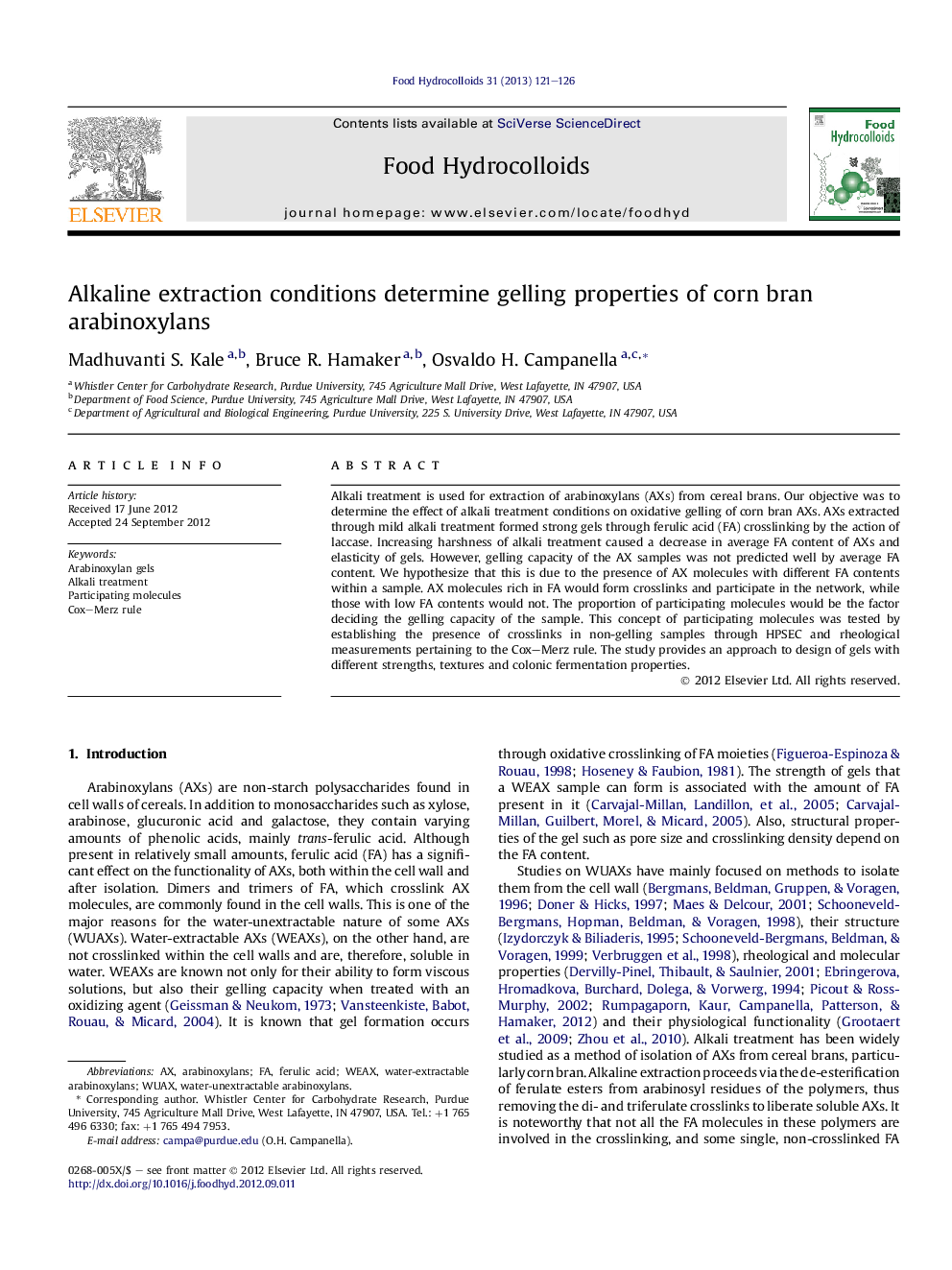| کد مقاله | کد نشریه | سال انتشار | مقاله انگلیسی | نسخه تمام متن |
|---|---|---|---|---|
| 605557 | 880350 | 2013 | 6 صفحه PDF | دانلود رایگان |

Alkali treatment is used for extraction of arabinoxylans (AXs) from cereal brans. Our objective was to determine the effect of alkali treatment conditions on oxidative gelling of corn bran AXs. AXs extracted through mild alkali treatment formed strong gels through ferulic acid (FA) crosslinking by the action of laccase. Increasing harshness of alkali treatment caused a decrease in average FA content of AXs and elasticity of gels. However, gelling capacity of the AX samples was not predicted well by average FA content. We hypothesize that this is due to the presence of AX molecules with different FA contents within a sample. AX molecules rich in FA would form crosslinks and participate in the network, while those with low FA contents would not. The proportion of participating molecules would be the factor deciding the gelling capacity of the sample. This concept of participating molecules was tested by establishing the presence of crosslinks in non-gelling samples through HPSEC and rheological measurements pertaining to the Cox–Merz rule. The study provides an approach to design of gels with different strengths, textures and colonic fermentation properties.
Figure optionsDownload as PowerPoint slideHighlights
► Alkali extractable corn bran AXs form gels through ferulic acid crosslinking.
► Gelling capacity and gel properties depend on alkali treatment conditions.
► Average ferulic acid content is not a good indicator of gelling capacity.
► Not all molecules in an AX preparation participate in gel formation.
► Potential to design gels for precisely targeted drug delivery in the colon.
Journal: Food Hydrocolloids - Volume 31, Issue 1, May 2013, Pages 121–126